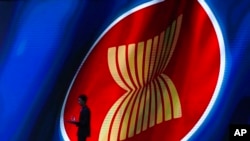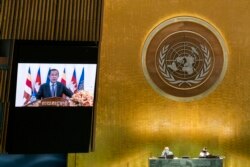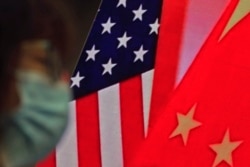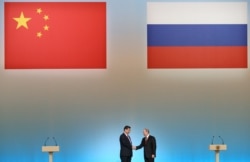Southeast Asian nations’ relatively strong responses to Russia’s invasion of Ukraine indicate damage to Moscow’s standing in the region and shows the states have serious concerns over the violation of international law and norms by a major power, analysts said.
While international ramifications of the Ukraine conflict are still unfolding, some experts believe it could also affect United States-China geopolitical rivalry in Asia, to the possible detriment of Beijing, VOA Khmer was told in recent days.
On March 2, a United Nations General Assembly vote saw 141 countries out of 193 supporting a resolution that condemned Moscow. Supporters included most Southeast Asian nations, while some, such as Singapore, Indonesia and Cambodia, also co-sponsored the resolution. Vietnam and Laos, Cold War-era allies of the Soviet-Union who remain dependent on Russian defense support, abstained.
A carefully worded Association of Southeast Asian Nations (ASEAN) statement on March 3 called for a ceasefire and dialogue, though stopped short of calling the conflict a Russian invasion. Singapore offered the strongest response, initiating unilateral sanctions against Russia.Across Asia, U.S. allies, like Japan and Taiwan, have come out in support of Western sanctions, while India and China abstained in the vote.
Bilahari Kausikan, former Permanent Secretary at Singapore's Ministry of Foreign Affairs, said Southeast Asia’s diplomatic responses should primarily be viewed as a rejection of Moscow’s breach of another nation’s sovereignty.
“Those ASEAN countries who voted for the resolution did so in support of international law and the U.N. Charter, and not against Russia,” Kausikan told VOA Khmer, adding, “This is Putin’s war not Russia’s war.”
Relations between the bloc and Moscow were damaged, but how significant remains to be seen.
“Russia-ASEAN relations are still only beginning to gain substance,’’ Kausikan said. “Moscow will have to balance its immediate annoyance against its long-term interests.”
In December, while the U.S. already issued warnings over Russia’s troop build-up on Ukraine’s borders, a top Russian official, National Security Adviser Nikolay Patrushev, discussed international security issues with Indonesia and Cambodia. His visit was timed to coincide with U.S. Secretary of State Anthony Blinken’s visit to the region. The Russian visit appeared to have done little to stem the diplomatic fall out of its invasion.
“The [UN] voting indicates that Russia has lost political, economic and military influence in Southeast Asia,” said Po Sovinda, an international relations PhD candidate at Australia’s Griffith University. He noted, though, that Moscow’s influence in Southeast Asia was limited to begin with.
“The security concern that most Southeast Asian states… have is the breach of the international law and norms that have protected small countries since the end of the Cold War,” Po Sovinda said.
Possible implications for US-China rivalry in Asia
The Ukraine conflict should worry ASEAN policymakers as it shows that international law, economic interdependence and confidence-building norms are not enough to prevent inter-state conflict, said Evan Laksmana, a political scientist at National University of Singapore.
“The [Russian] invasion also tells us that gray zone tactics that major powers use—whether in Ukraine or South China Sea—may be a prelude to an outright war, rather than an alternative to it,” Laksmana told VOA Khmer.
In the past 15 years or so, China has laid claim to the South China Sea and unilaterally expanded its security presence and infrastructure on islands and reefs in the maritime region. This has raised tensions with some Southeast Asian nations, like Vietnam, as well as Taiwan. U.S. allies’ naval forces have tried to assert their rights to pass through the region, also heightening tensions.
Laksmana said to what extent the Ukraine conflict could affect U.S.-China rivalry in Southeast Asia depends on Beijing’s evolving diplomatic position on it, though the overwhelming international response to the Russian invasion could benefit the U.S. in Asia.
“Given the united response of American allies and partners, and the strengthening resolve of Germany and other European powers to push back, the war may actually strengthen Washington’s hand in dealing with China in the Indo-Pacific,” he said.
“A disunited Europe was a boon for China and a bane for the US. That equation has now changed.”










